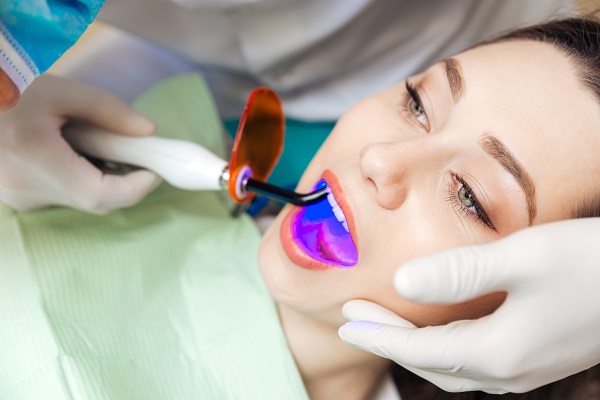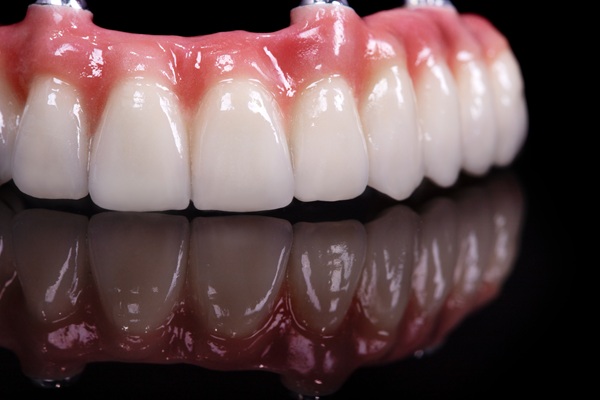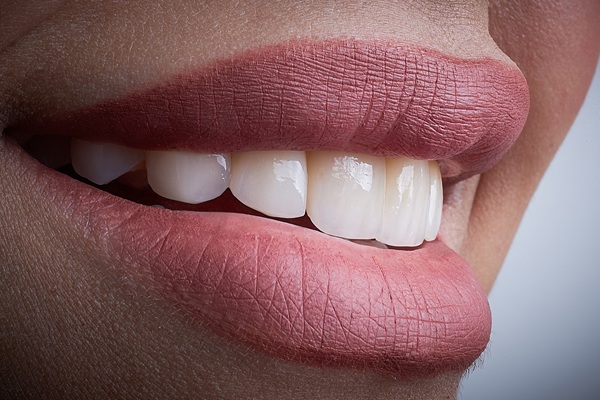How Laser Dentistry Can Be Used to Remove Oral Lesions

Thinking about choosing laser dentistry to remove one or more of your oral lesions? Soft-tissue lasers are often used to remove lesions because they offer precise dental treatment. This means that those who choose dental lasers to undergo lesion removal will often experience less pain and less scarring, both of which are important to consider when undergoing dental treatment.
Laser dentistry and oral lesions
Learning that laser dentistry is an option for dental patients who have oral lesions — also known as mouth lacerations and mouth lesions — allows patients to understand that they have choices when it comes to lesion removal. One of the more common types of lesions is canker sores, which often begins as a small and painful bump in or around the mouth area. Additional types of lesions include the herpes simplex virus, the HPV virus and oral cancer, which are more serious types and thus require quick treatment.
Lesion removal using dental lasers
The fact that using dental lasers offers dental patients a more precise treatment option means that patients can benefit from choosing this advanced dental treatment option. When patients are in need of oral lesion removal, there is a possibility that they will experience some degree of scarring. Because of this fact, many patients are concerned about any scars that may occur after having their lesions removed. Since patients are more likely to experience minimal scarring or even no scarring when choosing to undergo laser treatment, this advanced dental treatment is growing in popularity.
How lasers remove oral lesions in dental patients
Dental lasers use light, air and water to address cavities rather than with the use of anesthesia and dental drills. This is one of the reasons why this dental treatment is chosen by patients who experience dental anxiety. Dental professionals who offer laser treatment will focus the laser beam precisely on the lesion area to be treated, which either completely removes the lesion or, at the very least, lessens any discomfort and/or pain a patient experiences.
Soft-tissue lasers can help prevent new cavity formations
When certain types of dental lasers are used to treat soft tissue problems in dental patients, they will not only benefit from having their cavities treated, but they may also benefit from stronger teeth. Certain types of dental lasers can change the composition of a tooth’s enamel, making the tooth stronger overall. The stronger someone’s teeth are, the higher their chances of not being diagnosed with cavities in the future.
In need of an oral lesion removal?
Is laser dentistry the right choice for you? When someone is diagnosed with lesions in their mouth, it is important for them to have these lesions removed as soon as possible. The fact that there are many different types of oral lesions makes it essential for patients to understand what type of lesions they have, as some lesions are precancerous or cancerous. Whether patients know what type of oral lesions they have or not, laser treatment is available to remove their lesions.
Are you considering laser dentistry in the Aurora area? Get more information at https://alamedadentalaurora.com.
Check out what others are saying about our dental services on Yelp: Laser Dentistry in Aurora, CO.
Recent Posts
Understanding that laser dentistry is a treatment option for addressing cavities means that dental patients have choices. While not all dental professionals offer laser treatment, many now do as they want to offer their patients treatments that use advanced dental technologies. According to WebMD, lasers may preserve more healthy tooth tissue during cavity treatment.Thinking laser…
If you need dental implants, All-on-4® is an excellent option to help you replace missing teeth. We will review what they are, how they differ from previous iterations of implants, and how they work to help you decide if they are a suitable option for you.Dental implants are needed when you have missing teeth or…
Minor chips, cracks, and gaps in the smile do not have to be permanent. Dental bonding is a quick yet durable way to repair teeth with these cosmetic imperfections. With natural-looking results and minimal preparation, bonding can support oral health and restore the smile to its prior radiance.Dental bonding is a cosmetic procedure in which…
Patients often ask about TMJ treatment options when jaw pain, clicking, or headaches disrupt everyday life. The temporomandibular joint (TMJ) links the lower jaw to the skull and powers chewing, speech, and yawning. When the joint or the surrounding muscles become overworked or inflamed, symptoms can include jaw stiffness, ear fullness, limited opening, and facial…


